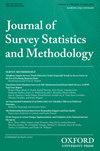基于概率的纵向研究中的面板调节:不同调查经验水平的受访者的比较
IF 1.6
4区 数学
Q2 SOCIAL SCIENCES, MATHEMATICAL METHODS
引用次数: 0
摘要
由于反复访谈而产生的学习效应,也被称为小组条件反射,是小组研究后期反应质量的主要威胁。到目前为止,研究还没有提供一个关于环境、机制和潜在面板调节效应的维度的清晰图景。特别是,条件反射频率的影响,即小组内不同水平的经验,对反应质量的探索不足。在此背景下,我们使用德国混合模式基于概率的面板研究GESIS面板的数据调查了面板调节的影响。使用两个茶点样本,我们比较了三个具有不同经验水平的小组队列,涉及反思、满意和社会可取性机制的几个反应质量指标。总的来说,我们发现了消极(即对反应质量不利)和积极(即对反应质量有利)面板条件作用的证据。经验丰富的受访者更有可能通过快速完成问卷而感到满意。与经验不足的小组成员相比,他们拒绝回答敏感问题的可能性也更高。然而,与经验水平较低的小组成员相比,经验丰富的受访者也更有可能优化响应过程,因为他们需要的时间更少(在控制超速的情况下)。相比之下,我们在“不知道”回答的数量、非分化、第一反应类别和中间反应的选择以及非触发过滤问题的数量方面没有发现显著差异。在观察到的差异中,经验丰富的小组成员的超速程度最高,平均比经验不足的小组成员高出6.0个百分点。本文章由计算机程序翻译,如有差异,请以英文原文为准。
Panel Conditioning in A Probability-based Longitudinal study: A Comparison of Respondents with Different Levels of Survey Experience
Abstract Learning effects due to repeated interviewing, also known as panel conditioning, are a major threat to response quality in later waves of a panel study. To date, research has not provided a clear picture regarding the circumstances, mechanisms, and dimensions of potential panel conditioning effects. In particular, the effects of conditioning frequency, that is, different levels of experience within a panel, on response quality are underexplored. Against this background, we investigated the effects of panel conditioning by using data from the GESIS Panel, a German mixed-mode probability-based panel study. Using two refreshment samples, we compared three panel cohorts with differing levels of experience on several response quality indicators related to the mechanisms of reflection, satisficing, and social desirability. Overall, we find evidence for both negative (i.e., disadvantageous for response quality) and positive (i.e., advantageous for response quality) panel conditioning. Highly experienced respondents were more likely to satisfice by speeding through the questionnaire. They also had a higher probability of refusing to answer sensitive questions than less experienced panel members. However, more experienced respondents were also more likely to optimize the response process by needing less time compared to panelists with lower experience levels (when controlling for speeding). In contrast, we did not find significant differences with respect to the number of “don’t know” responses, nondifferentiation, the selection of first response categories and mid-responses, and the number of nontriggered filter questions. Of the observed differences, speeding showed the highest magnitude with an average increase of 6.0 percentage points for highly experienced panel members compared to low experienced panelists.
求助全文
通过发布文献求助,成功后即可免费获取论文全文。
去求助
来源期刊
CiteScore
4.30
自引率
9.50%
发文量
40
期刊介绍:
The Journal of Survey Statistics and Methodology, sponsored by AAPOR and the American Statistical Association, began publishing in 2013. Its objective is to publish cutting edge scholarly articles on statistical and methodological issues for sample surveys, censuses, administrative record systems, and other related data. It aims to be the flagship journal for research on survey statistics and methodology. Topics of interest include survey sample design, statistical inference, nonresponse, measurement error, the effects of modes of data collection, paradata and responsive survey design, combining data from multiple sources, record linkage, disclosure limitation, and other issues in survey statistics and methodology. The journal publishes both theoretical and applied papers, provided the theory is motivated by an important applied problem and the applied papers report on research that contributes generalizable knowledge to the field. Review papers are also welcomed. Papers on a broad range of surveys are encouraged, including (but not limited to) surveys concerning business, economics, marketing research, social science, environment, epidemiology, biostatistics and official statistics. The journal has three sections. The Survey Statistics section presents papers on innovative sampling procedures, imputation, weighting, measures of uncertainty, small area inference, new methods of analysis, and other statistical issues related to surveys. The Survey Methodology section presents papers that focus on methodological research, including methodological experiments, methods of data collection and use of paradata. The Applications section contains papers involving innovative applications of methods and providing practical contributions and guidance, and/or significant new findings.

 求助内容:
求助内容: 应助结果提醒方式:
应助结果提醒方式:


